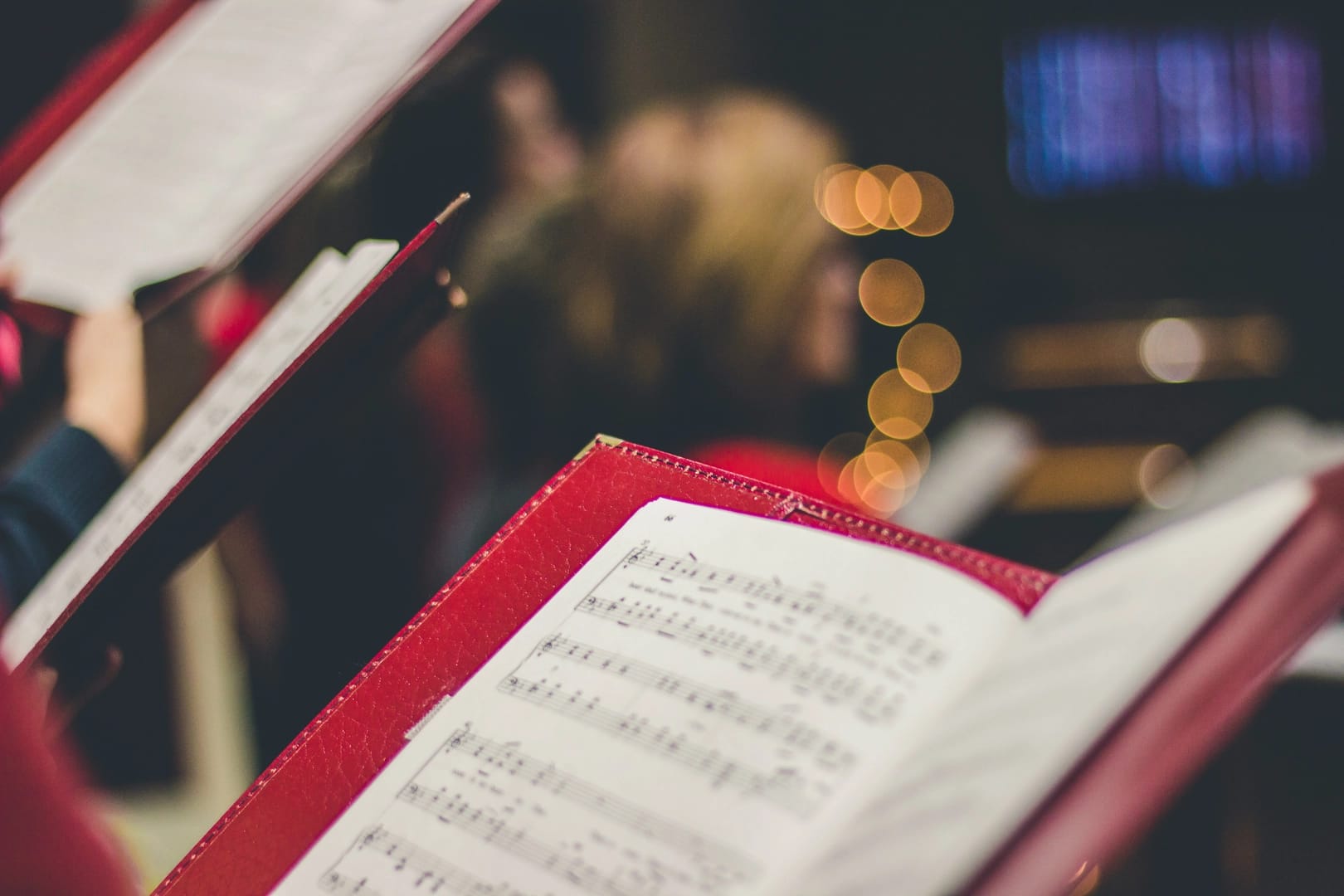
articles / The Ultimate 101
Your Ultimate Choral Playlist

Voting is open for our first ever Classical California Ultimate Playlist, and since we know many of our listeners are passionate about choral music, Brian Lauritzen, host of KUSC’s A Joyful Noise, put together this playlist to inspire your voting. If you think any of these pieces should be on the Classical California Ultimate Playlist click here to vote or let us know in the comments below.
Fauré and Duruflé Requiems
These oft-paired works are always at the top of my list of favorite choral music. They transcend time and religious tradition.
Reena Esmail: This Love Between Us: Prayers for Unity
The Los Angeles-based composer has written a number of choral works, including a really fun short piece that I play a lot on A Joyful Noise called Tuttarana (a portmanteau of the Italian word tutti, meaning together and the word tarana, a term in Hindustani music meaning something similar to scat-singing). In her large-scale cantata This Love Between Us, Esmail draws on texts from the seven major religious traditions of India. The work ends poignantly with a text by the 13th-century Persian poet and Islamic scholar Rumi: “The lamps may be different but the light is the same.”
Eric Whitacre: Sing Gently
I could put a lot of Whitacre’s music on an Ultimate Choral playlist, but what he wrote for the most recent iteration of the Virtual Choir, Sing Gently, speaks powerfully to a fractured and isolated world.
Joel Thompson: Seven Last Words of the Unarmed
In the context of modern American life, this music—composed in 2015—is not very new. Neither is the injustice the music addresses head-on. The message of this music is finally connecting with a wider audience this summer following the killing of George Floyd and the shooting of Jacob Blake. Thompson has set the last words of seven unarmed black men, each killed by police or other authority figure. If it makes us uncomfortable as we listen, that’s partly the point.
Ludwig van Beethoven: Symphony No. 9
The literal translation of the most often quoted line of Schiller’s Ode to Joy (“Alle Menschen werden Brüder…”) is “all people will become brothers”. It is, as it was in Schiller’s and Beethoven’s time, an as yet unreached destination. Beethoven’s monumental symphony asks us to assess how far we’ve come along that journey and challenges us to keep going. This live concert recording from 1962 features the American conductor Dean Dixon.
Anna Thorvaldsdottir: Hear Us in the Heavens
Her musical language is often dreamy and atmospheric, but Thovaldsdottir rarely writes for chorus. This setting of an ancient Icelandic Psalm is simple and stunning.
Caroline Shaw: To the Hands
This is a modern response (2017) to one of the so-called “Limb Cantatas” (1680) of Dietrich Buxtehude (musical reflections on different parts of the body of Christ as he hung on the cross). In this work (which includes a meditation on the Emma Lazarus poem at the base of the Statue of Liberty), Shaw imagines open hands, wounded, yet still beckoning to those who are broken, “I will be your refuge.”
Morten Lauridsen: Lux Aeterna
Quite simply, an instant classic. Hard to believe it is already 23 years old, but also nearly impossible to imagine what it was like before it existed.
Duke Ellington: The Lord’s Prayer
Yes, that Duke Ellington. This a capella version takes a more reflective tone than the jubilant version in the 1965 Concert of Sacred Music.





